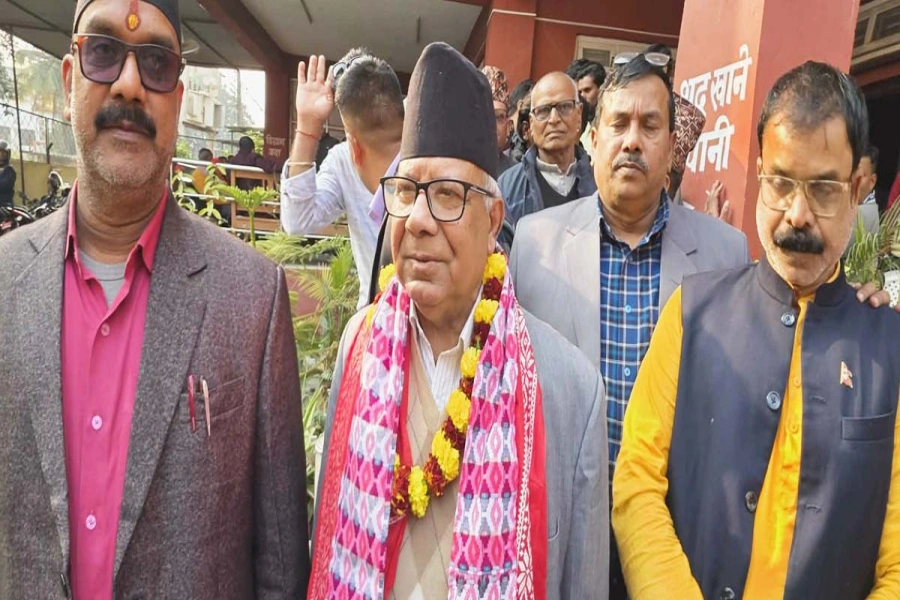Development planning is a political process. National Planning Commission, as part of that machinery, belongs in the Prime Minister’s Office
The National Planning Commission (NPC) should be shut down and be integrated within the Prime Minister’s office.
NPC is the government’s institutional authority for planning. Its responsibilities broadly extend over three different areas. First, it is responsible for formulating the national vision, development policies and sectoral targets. Second, it estimates resource requirements, identifies funding sources, and allocates budget for socio-economic development. Third, it serves as the central agency for monitoring and evaluating development policy, plans and programs.
At least, that is what it says in theory.
In practice, however, NPC derives its political authority from its ability to guide, direct and determine the government’s capital budget. It has the most enviable position across all of government: It decides which capital investment project will be funded but bears absolutely no responsibility for how the project is ultimately implemented. The control over the budgeting process makes NPC a formidable authority within the government.
NPC also guides the government on foreign aid—often determining which aid should be accepted and how it should be accepted. Though technically only as adviser on foreign aid, NPC effectively serves as the de-facto screening body for aid to Nepal. Its ability to control and direct aid flows makes it an extremely powerful body.
Criticism of the functioning and utility of the NPC isn’t new, particularly in the new context of Nepal’s federalism and decentralization. But any doubt about whether NPC would retain its authority was sealed on April 9, 2018 when the cabinet issued an executive order that continued with the commission.
In fact, the executive order gave the NPC expanded authority as the apex institution for project planning and monitoring. NPC quickly seized on this authority announcing a new project bank in August for the assessment, evaluation and monitoring of projects being implemented at the federal level.
There is an environment to justify supplementary budget

NPC continues to lead on its traditional roles. It recently released a draft of the 15th five-year plan for public review and comment. At the same time, it has pushed ahead as the chief national planner, recently unveiling Nepal Vision 2100 (2043).
Assessing whether the NPC has successfully discharged its responsibilities is not the motivation for this piece. The question is whether NPC as an institution remains meaningful for Nepal’s development process, whether its structure as an independent commission is appropriate to facilitate the complex development process that involves political, social and economic dimensions.
Political puppet
Despite its institutional independence and authority as a commission, for all practical purposes the NPC is an extension of the Prime Minister’s office. Why it even exists separately from the Prime Minister’s office is a bit of a puzzle. The Prime Minister’s office is where NPC really belongs and where it should be located.
The Prime Minister is the Chairman of the NPC. The NPC Vice-Chairman, members and the entire NPC secretariat do very little beyond rubber stamping the decision making and planning process of the executive wing.
The views of the NPC reflect the views of the government in its entirety. There is little discourse. There is little to suggest that NPC critically evaluates any of the proposals that government suggests. It lacks any meaningful authority to force course corrections when project implementation fails.
None of this is inherently wrong. Development planning, budgeting, prioritization and monitoring are critical to the smooth functioning of government. But there is no better place for it than within the Prime Minister’s office. What the NPC is currently doing in terms of planning, coordination and monitoring would be better assimilated directly within the Prime Minister’s Office instead of a separate commission. This would provide the Prime Minister greater oversight of government’s project execution across all sectors and the whole country, thus allowing the Prime Minister to steer development more effectively.
Political process of planning
As a commission independent of the Prime Minister’s office, NPC is extremely damaging to Nepal’s development prospects. It opens development planning to a high degree of political interference and reduces the quality of science in the development planning process. As a separate institution, NPC does little more than convert political rhetoric into development paradigms.
The selection of the NPC vice-chair and members reflect clear political interests. In most cases they are intended to reward political loyalty or serve as a launching pad for bigger political roles. Again, there is nothing wrong with such political choices. But it would be better to include them within the Prime Minister’s Office where political interests can and are expected to be exercised.
As a separate planning commission, the NPC has the large and daunting task of prioritizing development projects. It does so, it claims, based on cost-benefit analysis and other socio-economic parameters. Despite the appearance of science, the process of project selection at NPC reflects a vast chamber for back room deals. Projects are prioritized based on political pressure. Powerful parliamentarians get bigger projects than less powerful parliamentarians.
Again, there is nothing inherently wrong in political influences determining development outcomes. But such processes for development planning belong within the Prime Minister’s office where political transactions as the basis for project selection is acceptable. Such methods do not belong within a planning commission that intends to adopt scientific, neutral and balanced approaches to development planning.
Development planning is a political process. The idea that development planning can be delivered by some wise men and women who will make decisions neutrally, objectively and without political interests is false.
The National Planning Commission is an important part of the overall political machinery. For that, it must be part of the Prime Minister’s Office not a separate institution.
Vision 2100
A politically influenced development planning process masquerading as pseudo-independent planning commission is damaging to our development prospects. Take Nepal Vision 2100, the recent long-term vision paper published by NPC.
The vision statement is a good illustration of political rhetoric whitewashed as a long-term development plan. Built on the government’s political slogan of “Prosperous Nepal, Happy Nepali,” the vision is far from a meaningful development plan. It is largely a political campaign literature infused with rhetoric that can win votes, but lacking the science, analysis or methodology to be a meaningful development paradigm.
The vision is a poor representation of the country’s forward-looking aspirations. It fails to take account of how technology is reshaping the world. It ignores the youthful energy that is Nepal’s best assets today. It fails to imagine how an interconnected Nepal, governed by local bodies, can drive economic growth, human and social prosperity.
Rather than a bold vision that captures the aspirations of Nepalis, Vision 2100 comes across as a dull speech—a speech given by a fatigued rebel leader who has just won a battle and must say something to energize his tired lot.
Again, there is nothing wrong with political speeches at the end of a long battle. Such sloganeering is an important part of the broader political process. But such sloganeering must come from and be attributed to the political machinery of the state, such as the Prime Minister’s office.
If the NPC remains content to repackaging political rhetoric as Nepal’s development plan, why should it continue to exist independently? The NPC belongs within the Prime Minister’s office.
bishal_thapa@hotmail.com






































